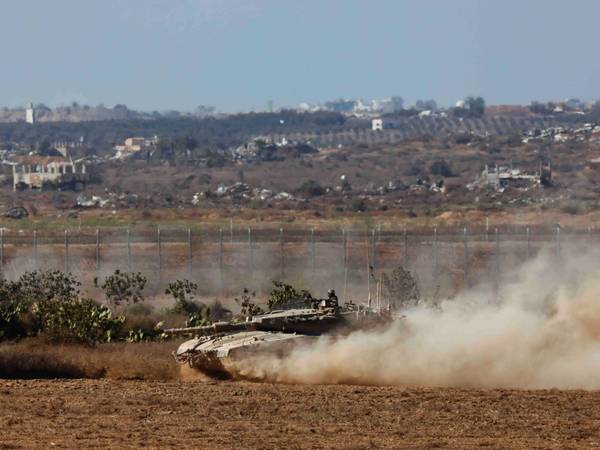The Middle East has recently witnessed a series of security and military developments, including targeted assassinations carried out by Israel, aimed at prominent leaders of Iran-backed armed movements.
These events come at a time of rising fears of a full-scale regional war, with escalating tensions between Israel and Iran's proxies in Lebanon, Iraq, Syria, and Yemen. This escalation coincides with a coordinated and forceful American move in Iraq.
The assassination of Ismail Haniyeh, one of Hamas' most prominent leaders, in Tehran was the most spectacular of such attacks. Haniyeh, who was leading the political operations of the movement while living abroad, was the second leader of an Iran-backed armed group to be killed in less than 24 hours.
Hamas accused Israel of carrying out the attack after Haniyeh attended the inauguration of the new Iranian president. The assassination comes at a critical time, coinciding with escalating tensions between Israel and Hezbollah and rising fears of a wider regional war.
In the same context, Israel carried out an attack in the Lebanese capital, Beirut, on Tuesday resulting in the death of Fuad Shukr, Hezbollah’s top military commander, accused of carrying out a deadly attack in the occupied Golan Heights that killed 12 children.
The Israeli retaliation against Fuad Shukr, the second-in-command in Hezbollah and one of Hassan Nasrallah's top advisors, known as “Hajj Mohsen,” eliminated a prominent military figure in Hezbollah, with a $5 million bounty placed on him by Washington.
He was often described as the “Qasem Soleimani of Hezbollah” due to his significant role in planning and executing Hezbollah’s military operations, making his death a significant loss for the terror group.
The latest escalation is the most serious since the clashes between Hezbollah and Israel began last October following the outbreak of the Gaza war, sparked by the Iran-backed Hamas invasion of Israel. Hezbollah has since launched over 6,400 projectiles towards Israel in support of Hamas in Gaza.
Although Israel has not commented on Haniyeh’s death, it has previously called him “a dead man walking” and amid sensitive hostage negotiations, had to agree not to assassinate him in Doha, one of his foreign bases.
Haniyeh was the point contact for the negotiations moderated by the United States, Egypt and Qatar to release 114 Israeli hostages still held in Gaza after Hamas took 250 or more captive on October 7. Questions now linger as to who will take his place.
The double assassination comes at a time when Israel faces multiple challenges on several fronts, including Syria, Iraq, Lebanon, and Yemen, Iran’s proxies acting in allegiance with Hamas in Gaza.
By attacking Haniyeh in Tehran, Israel aims to send a direct and clear message to the Iranian regime, led by Ali Khamenei, indicating that Israel can reach its targets whenever and wherever it wants.
Israel’s decision, seen as a move to strengthen deterrence against the Tehran axis, also included targeting Ismail Haniyeh on the day of the new Iranian president's inauguration, a carefully timed move to deliver a precise political and security message.
Simultaneously and possibly not by coincidence, the United States carried out a defensive airstrike in Iraq this week on a base south of Baghdad which resulted in the death of four and injury of four members of the Iran-backed Iraqi Popular Mobilization Forces.
While the Popular Mobilization Forces did not directly accuse anyone, the United States indicated that the strike targeted militants planning drone attacks threatening US and coalition forces. Since October 7, over 200 attacks by Iranian proxies have targeted US troops across the region with multiple deaths and scores of injuries.
A spokesman for the Iraqi armed forces condemned the attack, calling it an "atrocious crime" that could undermine joint efforts to combat ISIS. These developments come at a sensitive time for Iraq, which is experiencing increased reciprocal attacks between armed factions since the war between Israel and Hamas.
With 2,500 American troops in Iraq, the US-led coalition is expected to begin withdrawing in September, with some forces possibly remaining in an advisory capacity until 2025.
The recent assassinations of prominent leaders in Hamas and Hezbollah indicate a new Israeli strategy that relies on preemptive and direct strikes to enhance deterrence and send clear messages to Tehran and its allies. This escalation occurs amid broad geopolitical shifts, with both the United States and Israel aiming to reduce Iran's influence in the Middle East.
In Iraq, the American attack on Popular Mobilization Forces reflects growing tensions between Washington and Iran's proxies, showcasing US readiness to take strong measures against threats to its forces. These strikes come at a time when Iraq is experiencing political and security turmoil, further complicating the situation and placing the Iraqi government in a difficult position between maintaining its relationship with Washington and containing internal anger from Iran-backed armed factions.
